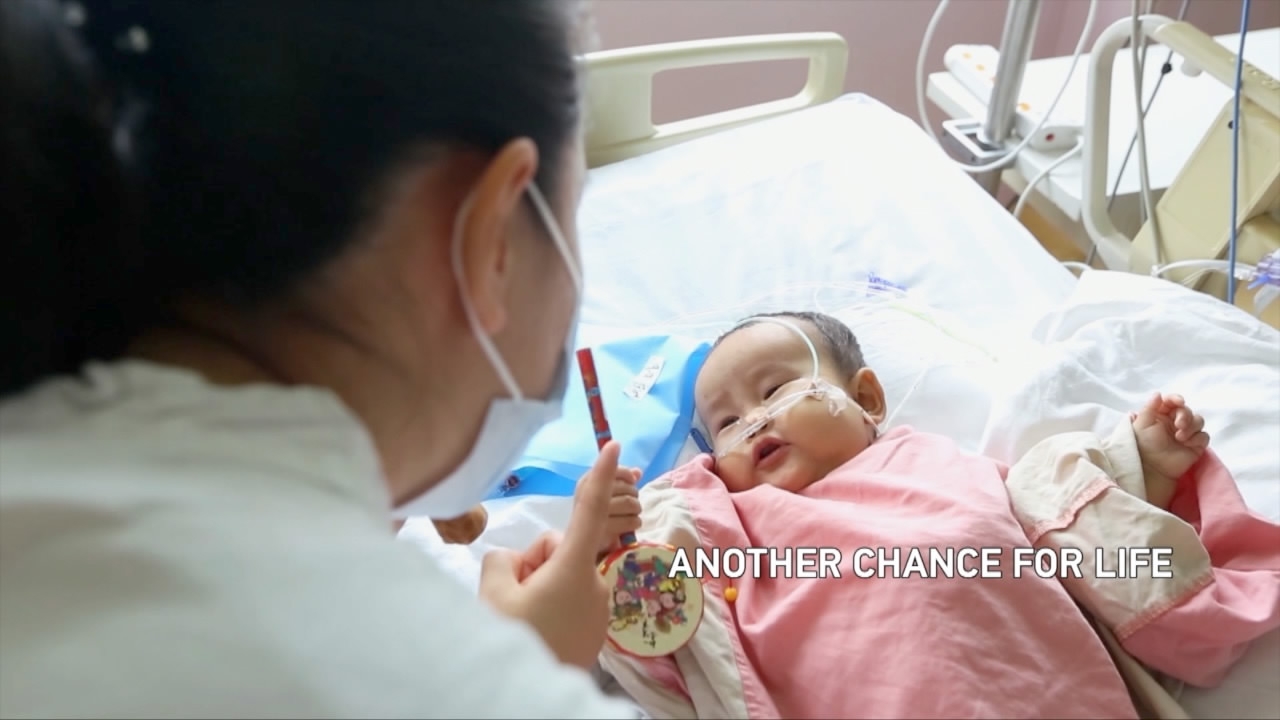By CGTN’s Wang Fan
On August 31, 2017, Zhou Huili, 55, from China’s central Henan province, was lying in bed at the Budget Hotel in Tianjin, 130 kilometers away from Beijing. Suffering from Hep B Cirrhosis, she was weak and had lost almost half her body weight. She couldn’t manage to eat more than a bowl of noodles a day.
Her doctors told her she needed a liver transplant to stay alive. Although she had registered at three different hospitals, no matching liver had been found for her in seven months.
“How long till the wait is over?” asked Yang Yongqing, Zhou’s husband. “Her illness is already in the late stages. She’s on the brink.”
Yang had decided to care for his wife in Tianjin because it was cheaper than staying in Beijing. He was living on just five yuan (less than one US dollar) per day, saving every cent for his wife’s operation. He intended to have her admitted to the hospital as soon as a suitable liver was found. Back then, stays in the hospital while waiting for an organ to become available cost tens of thousands of yuan a time.
“I can’t give up on her,” Yang said. “I still believe in a silver lining.”
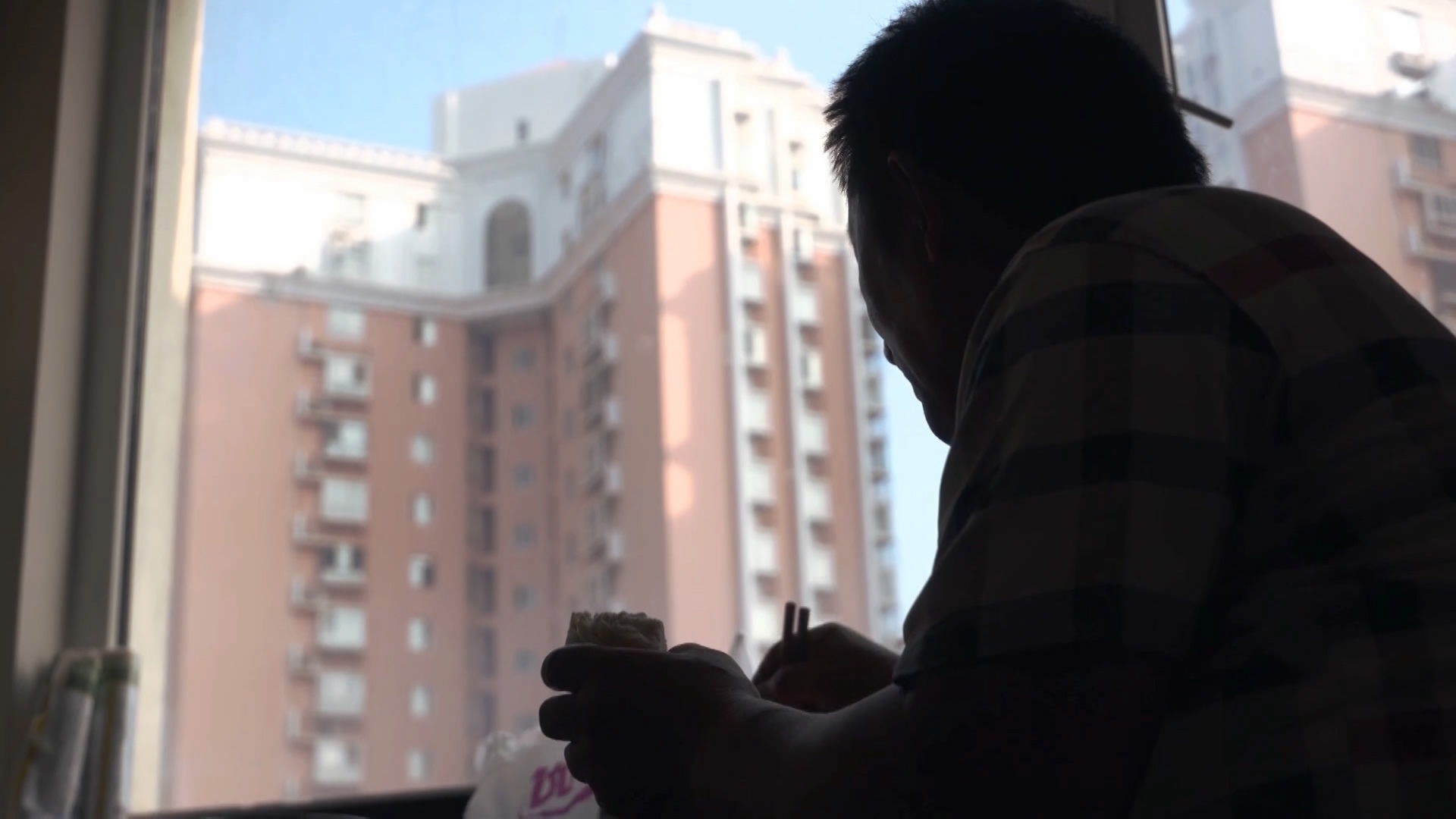
Yang Yongqing sits by the window of the Budget Hotel room where he and his wife rented, eating a bun and some steamed eggplant for lunch. (Ma Jun/CGTN Photo)
Yang Yongqing sits by the window of the Budget Hotel room where he and his wife rented, eating a bun and some steamed eggplant for lunch. (Ma Jun/CGTN Photo)
Volunteer donors
China abandoned the use of organs from executed prisoners in transplants on January 1, 2015. It came five years after the adoption of a pilot voluntary organ donation program in 2010. That year, a mere 34 volunteer donors supplied organs, a figure that soared to 5,146 in 2017.
However, this still falls far short of what’s needed. It’s estimated that around 300,000 people in China are in need of a transplant, but only about 30,000 are currently on the waiting list of the national organ-matching platform, the China Organ Transplant Response System. And only half of them receive operations every year.
“At our transplant center, there are 50 to 60 patients waiting for a donor's liver,” said Dr. Zhu Zhijun, director of the liver transplant center at the Beijing Friendship Hospital. “On average, they wait two to three months.”
Zhu said there was anxiety among transplant surgeons following the 2015 ban, fearing a sharp decline in organ supply and that many patients would have no opportunity to be cured. So the steady growth in voluntary donations took everyone by surprise.
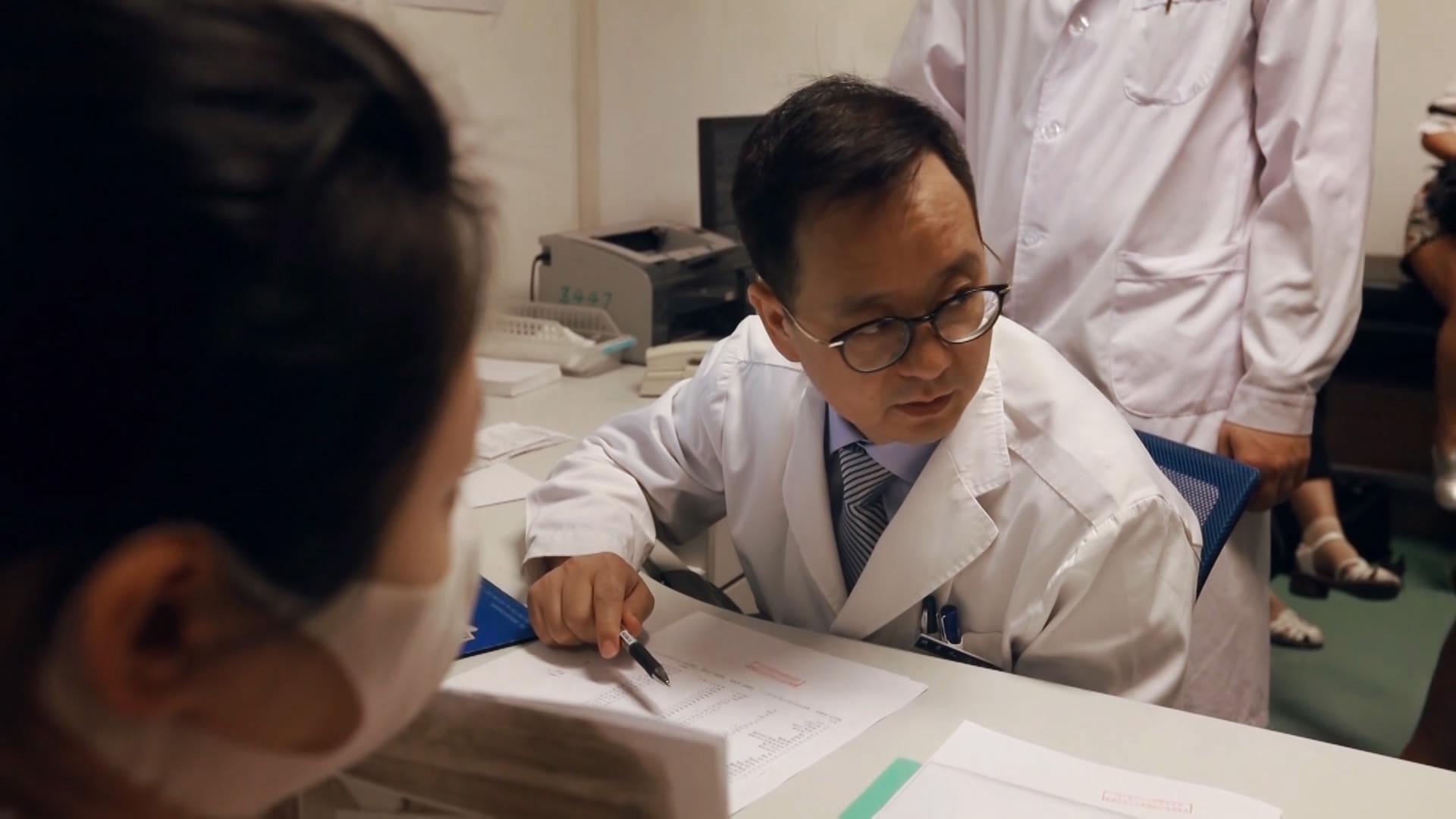
Dr. Zhu Zhijun performed 207 liver transplants last year at Beijing Friendship Hospital. (Wang Yue/CGTN Photo)
Dr. Zhu Zhijun performed 207 liver transplants last year at Beijing Friendship Hospital. (Wang Yue/CGTN Photo)
Living vs. cadaver transplant
Zhu’s team performed 207 liver transplants in 2017 – multiple operations every other day. In half of these cases, the livers were donated voluntarily after death; while the other half was from living donors, giving their livers to their relatives.
China issued an organ transplant law in 2007 that bans organ trafficking and set out guidelines for organ donation and transplantation. Living donations are only permitted to blood relatives and spouses, plus someone considered "emotionally connected."
In many cases, parents choose to make a living organ donation to their child, typically because, on one hand, they say that they were told there would be a lower chance of post-operative rejection and, on the other hand, the cost would be much lower compared to a cadaver liver transplant.
According to Dr. Zhu, the cost of a living donor liver transplant ranges from 150,000 to 200,000 yuan (23,000 to 32,000 US dollars), whereas a cadaver liver transplant costs somewhere between 600,000 to 700,000 yuan (94,000 to 111,000 US dollars), excluding post-operative care and rehabilitation expenses.
“I think they are not in conflict,” said Dr. Zhu. “An increase in voluntary donations can benefit our patients, but there’s still a shortage. So progress in living liver transplants is also good in that it can save the lives of our patients who, for various reasons, have waited for a long time without a matching liver being found.”
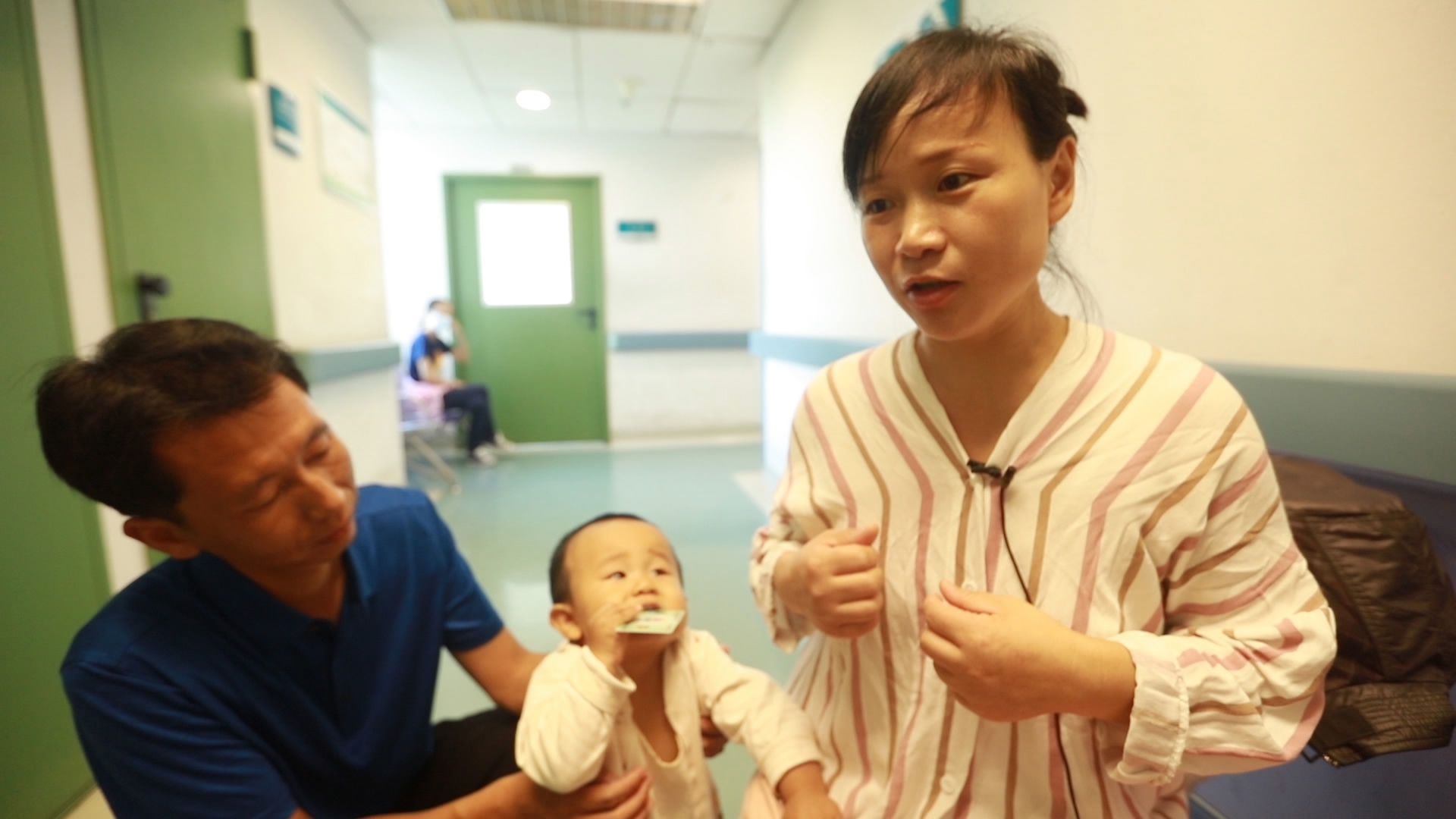
A woman from northeastern Liaoning province has decided to undergo a living liver transplant to help her son, who’s suffering from biliary atresia. “As a mother, I feel that I’m responsible to save him,” she says. (Wang Yue/CGTN Photo)
A woman from northeastern Liaoning province has decided to undergo a living liver transplant to help her son, who’s suffering from biliary atresia. “As a mother, I feel that I’m responsible to save him,” she says. (Wang Yue/CGTN Photo)
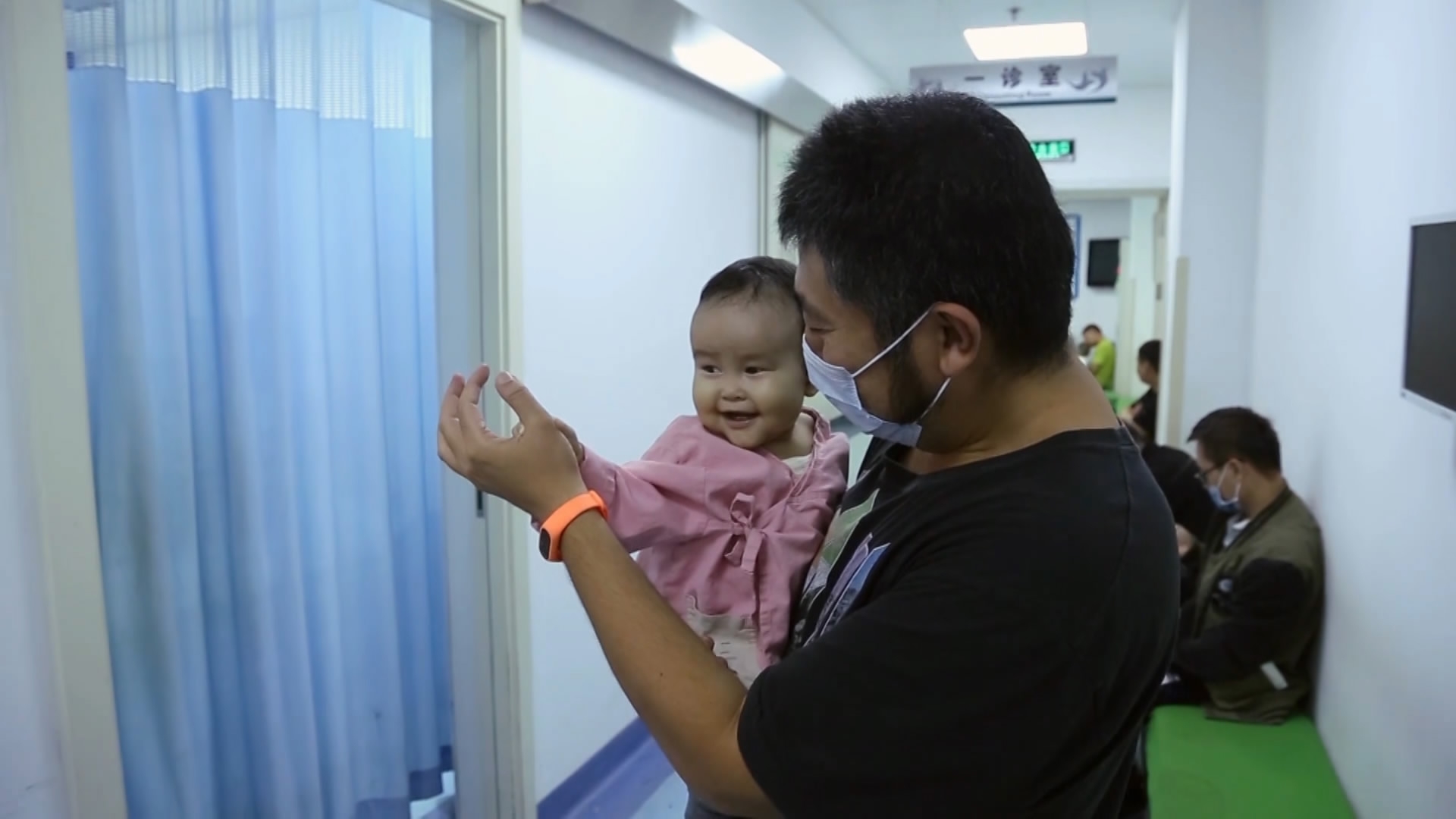
Yu Guo’er, a 1-year-old infant from Beijing, is suffering from Alagille Syndrome, a liver disease. Guo’er underwent a liver transplant on her first birthday. Her father initially wanted to donate part of his liver, but a donor's liver was matched while they were waiting. (Zhao Lei/CGTN Photo)
Yu Guo’er, a 1-year-old infant from Beijing, is suffering from Alagille Syndrome, a liver disease. Guo’er underwent a liver transplant on her first birthday. Her father initially wanted to donate part of his liver, but a donor's liver was matched while they were waiting. (Zhao Lei/CGTN Photo)
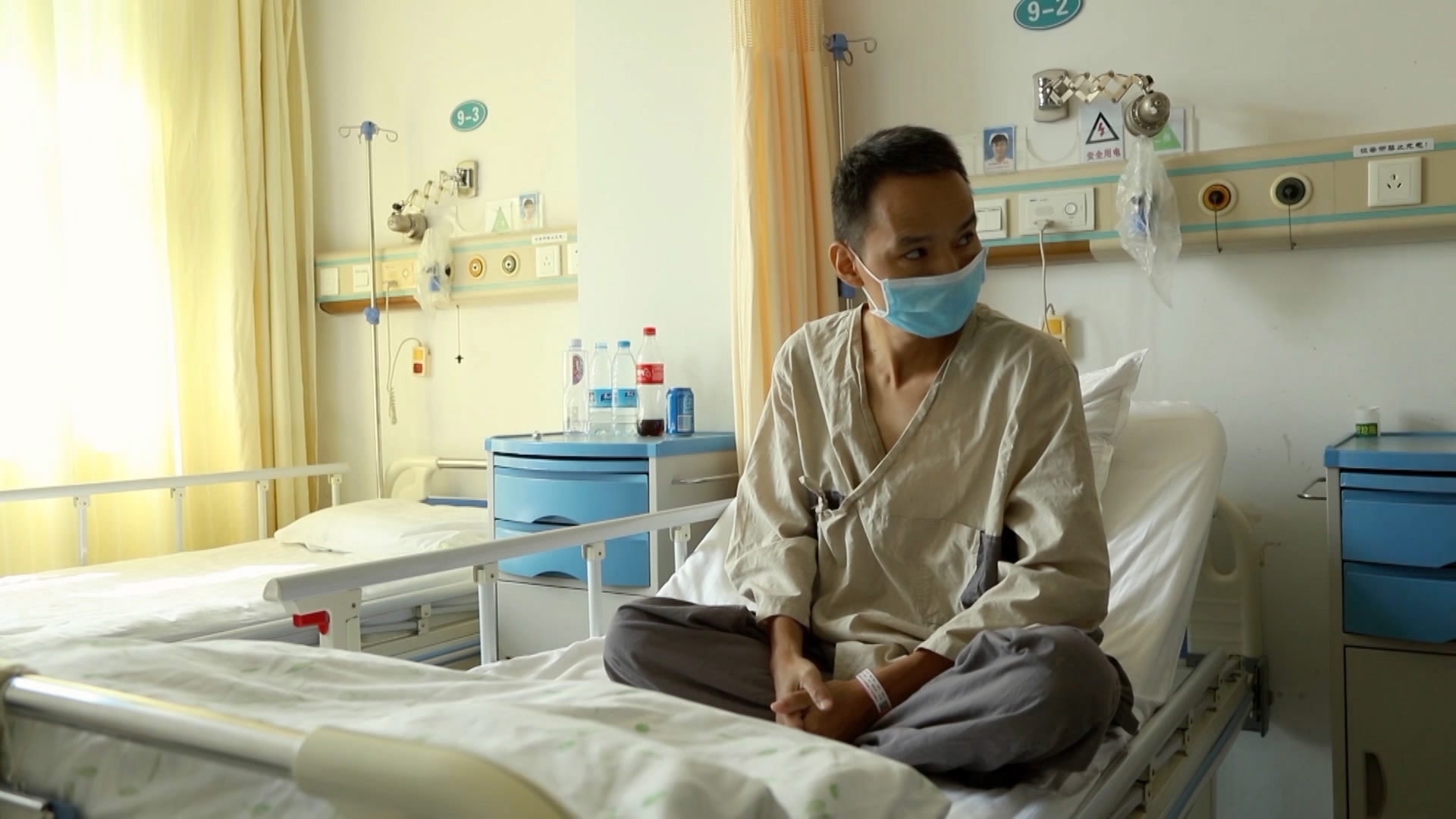
Yi Weiqiang, 38, from the coastal province of southeast China, Guangdong, suffers from Hep B Cirrhosis. He had been waiting for a suitable liver for three weeks. When it finally arrived, he said it felt like the hope he lost was regained. (Ma Jun/CGTN Photo)
Yi Weiqiang, 38, from the coastal province of southeast China, Guangdong, suffers from Hep B Cirrhosis. He had been waiting for a suitable liver for three weeks. When it finally arrived, he said it felt like the hope he lost was regained. (Ma Jun/CGTN Photo)
Even when a match is found, many patients struggle with the high costs of a transplant. Often, the doctors find themselves helping needy families apply for financial support from NGOs in Beijing, such as the Beijing Angel Mom Charity Foundation and the China Social Welfare Foundation.
“With medical insurance, people would feel less pressure,” Zhu said.
After an eight-month wait, a liver was finally found for Zhou Huili. The donor was a 40-year-old male who had died as a result of a head injury. Zhou survived the operation but didn’t make it through the post-op recovery due to an infection. She passed away a month after her operation.
Rediscovering China is a 30-minute features program offering in-depth reports on the major issues facing China today. It airs Sunday at 10:30 a.m. BJT (0230GMT), with a rebroadcast at 11:30 p.m. (1530GMT), as well as Monday 8:30 a.m. (0030GMT) and Friday 1:30 p.m. (0530GMT).

